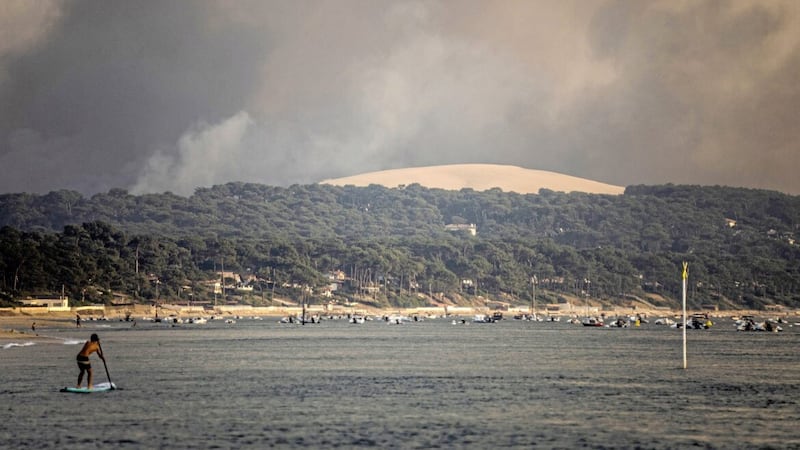‘Everybody Loves the Sunshine’ Roy Ayers famously sang back in 1976, a year remembered fondly by myself and many others for its long, sweltering summer.
The sentiment is a valid one – people, on the whole, respond positively to sunny weather. Sunshine generates vitamin D and increases serotonin levels, making us not only feel better immediately but also promoting long-term health benefits, such as strengthening our bones and reducing blood pressure.
But there can also be downsides to extreme warm weather, and I don’t just mean the sudden proliferation of topless pasty men or beaches strewn with empty beer cans and ‘disposable’ barbecues.
While we’ve made some progress over the years in reporting soaring temperatures, there’s still a tendency to celebrate baking heat. The hackneyed ‘Phew what a scorcher’ tabloid headlines may no longer prevail yet elements of the media can sometimes lose the run of themselves in a heatwave.
In some instances, unprecedented temperatures are presented as a record-breaking attempt in which we are expected to collectively urge the mercury upwards. The context of the heat in a transforming climate is all but ignored as weather stations in previously unheard of places seemingly compete, X-factor style, to be the hottest. Last July, that honour fell briefly to Ballywhaticock in Co Down, where temperatures reached what was then an all-time six-county high of 31.2°C. A Belfast company even printed commemorative t-shirts, playing on the mildly rude nomenclature, the climate crisis reduced to the level of a Carry On gag.
While the temperatures experienced in the north over recent days were well above the average for this time of year, they didn’t break any records. It was a different story farther south, however, where temperatures exceeded 32°C, resulting in a series of weather warnings from Met Éireann.
In Britain, it was hotter still, with temperatures soaring past previous highs by up to three degrees and London reportedly hotter than the Western Sahara. Meanwhile on the continent, wildfires raged after weeks of scorching conditions left vegetation tinder dry. In Spain and Portugal, where thermometers peaked at around 47°C, it was reported that the heat had claimed at least 1,000 lives over the past week.
For many in the north there was an air of disappointment that our heatwave failed to live up to expectations. Yet the same people can perhaps console themselves in the knowledge that if the climate scientists’ predictions are anything to go by, we haven’t seen the last of it. Equally, there will be those, like DUP MP Sammy Wilson, who argue that there’s nothing abnormal about the recent weather and what we experienced was just a “couple of warm days”. The balmy summer of 1976 has been widely cited as a precedent. Back then we didn't need weather warnings or climate scare stories, just a handkerchief on the head and some Dunkirk spirit. The MP for East Antrim is well known for his contrary, eccentric views but scratch the surface at Stormont, where incredibly he was once environment minister, and you’ll find he’s not such an outlier.
The climate crisis is nothing new. It’s almost 50 years since the negative impact of industrialisation on weather patterns was first identified and from the turn of the millennium, at the latest, there has been scientific consensus about the causes and dangers of climate change. The latter period roughly corresponds with our own intermittent period of devolution but with the exception of generous renewables schemes, Northern Ireland Executive action on climate change has been completely absent – net zero, if you will. Whether it’s healthcare reform or tackling division, the Stormont administration is notoriously sluggish, but not only has it failed to adopt policies that seek to reduce emissions, it has actively encouraged the expansion of industries that generate so-called greenhouse gases.
Going for Growth saw public resources ploughed into the agrifood industry despite clear warnings about the negative impact of methane, ammonia and nitrous oxide – gases produced by livestock. At a time when energy policy was starting to move away from fossil fuels, we were financing a new gas pipeline to rural Co Fermanagh. All this was carried out against a background of outdated planning strategies and a transport policy stuck in the 1970s. It was only last year that Stormont caught up with other legislatures in these islands and introduced a Climate Change Bill, albeit one that was typically diluted so as not to upset the status quo.
Perhaps we need to break a few more temperature records before our politicians are fully convinced about the urgency of the climate emergency?








